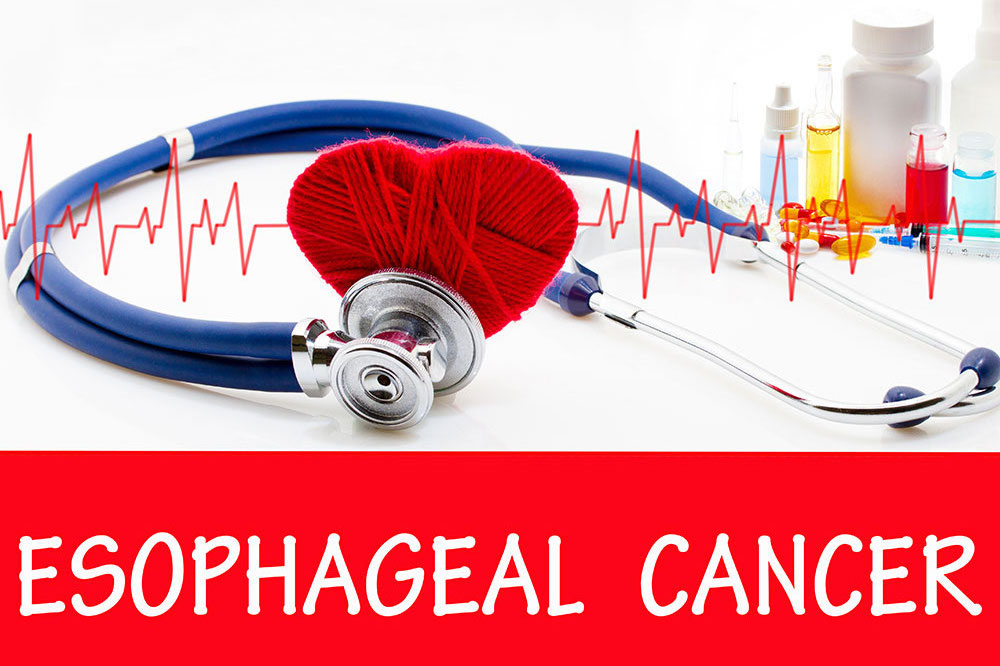
Esophageal cancer – Signs, causes, and management
Esophageal cancer affects the esophagus. It is the long tube that carries food from the mouth to the stomach. In this tube, cancerous cells grow for various reasons leading to tumors. As the tumor grows, esophageal cancer signs start to become evident. As soon as the symptoms show up, it is recommended to start treatment to prevent the cancer cells from metastasis. Here are a few esophageal cancer signs, causes, and treatments to make note of.
Esophageal cancer signs
Starting in the inner layers of the esophagus, the cancer cells grow outward, spreading to the esophageal wall. In the early stages, no symptoms are noticeable or detectable. However, as the cancer cells grow to the lymph nodes, the blood vessels in the chest, and other organs, some of these esophageal cancer signs start to manifest.
Chest pain
This is one of the most common symptoms of esophageal cancer. A person will start to feel pain, specifically in the middle area of the chest. The pain is similar to feeling pressure build up in the chest or like a burning sensation. After some time, the pain radiates to other areas, such as below the throat, between the shoulders, and behind the breastbone.
Trouble swallowing
Esophageal cancer often causes difficulty in swallowing. This happens because the growth of the cancerous cells causes the esophagus to become narrow. Due to this, there is an obstruction in the smooth passage of food. This makes it difficult to swallow the food normally. This symptom starts as very mild in the beginning. With the cancer advancing, it worsens as the person feels like the food is stuck in the throat or chest. Sometimes, this can also cause choking.
Hoarseness
An occasionally occurring cough or a hoarse, scratchy voice may indicate a mild health problem that may pass in a few days. However, if these symptoms continue, a healthcare provider should be consulted immediately to rule out esophageal cancer. When a tumor presses up against one’s vocal cords, their voice changes.
Changed eating habits
As esophageal cancer starts to make swallowing difficult, there is a slow change in the person’s eating habits. With the gradual narrowing of the esophagus, it becomes harder to eat solid foods. Also, foods that get stuck easily, such as meat or bread, become difficult to eat. So there is a change in what the person chooses to eat. A person with esophageal cancer prefers softer foods that will not make one cough or choke. Moreover, one will begin to eat more slowly, taking smaller bites.
Vomiting
A person may vomit after eating because the food gets stuck in the esophagus when a tumor narrows the esophageal passage making it more difficult to push food through.
Bleeding in the esophagus
With the esophagus narrowing, the food that moves through may have an abrasive effect on the esophageal walls. As a result, there can be bleeding. This symptom becomes evident with blood in the person’s stool.
Loss of appetite
Since the person finds it difficult to swallow food, one may not feel like eating. Also, a person may opt for liquid foods that may taste as good as regular food. This leads to a loss in appetite which further causes fatigue.
Esophageal cancer causes
Experts don’t know the exact cause of esophageal cancer. However, research is still ongoing to ascertain what causes mutations in the cells in the tissues of the esophagus. Although the causes are unknown, certain factors that increase the risk of this type of cancer have been identified. Here are a few known risk factors.
Barrett’s esophagus
Chronic acid reflux, when left untreated, causes changes in the cells of the lower part of the esophagus. This leads to a condition known as Barrett’s esophagus. Those with Barrett’s esophagus are at a higher risk of esophageal cancer. In addition, it has been observed that those with long-term heartburn also carry a similar risk.
Human papillomavirus (HPV)
HPV is a virus that changes the tissues in several parts of the body, including the vocal cords. This increases the susceptibility to esophageal cancer.
Family history
People with close family members who had or have esophageal cancer are also at high risk.
Presence of other types of cancer
Sometimes, cancer of the head or the neck can metastasize, leading to a greater risk for esophageal cancer.
Other disorders
A few rare and inherited conditions are closely linked to esophageal cancer. These include achalasia, where the esophagus loses the ability to move food, leading to vomiting and acid reflux, and tylosis which is an inherited skin condition.
Occupational exposure to certain chemicals
The risk of esophageal cancer increases with long-term exposure to certain chemicals such as dry cleaning solvents.
Esophageal cancer treatments
The treatments for esophageal cancer depend on the stage of the cancer and the person’s overall health. A healthcare professional will devise a treatment plan involving the following procedures.
Surgery
Surgery is used as a standalone treatment as well as in combination with other methods of treatment. The surgery can remove small tumors and the surrounding tissues if the cancer is in the initial stage, has not spread, and is still in the superficial layers of the esophagus. Surgery can be done using an endoscope passed down one’s throat and into the esophagus.
Chemotherapy
Chemotherapy uses prescription products that can kill off the cancer cells and prevent them from growing further. In most cases, this therapy is done before or after surgery. Sometimes, chemotherapy is combined with radiation therapy.
Radiation therapy
In radiation therapy, high-energy beams like protons and X-rays are used to target and kill cancerous cells. The radiation beam is administered through a machine by aligning it with the part of the body where the cancer has started. In some cases, radiation particles are placed inside the body where the cancerous cells are.
Targeted therapy
Targeted therapies are designed to target certain weaknesses of the cancerous cells. Using prescription treatments, these cells are prevented from multiplying and spreading, causing them to die. In the case of esophageal cancer, targeted therapy is usually combined with chemotherapy.





